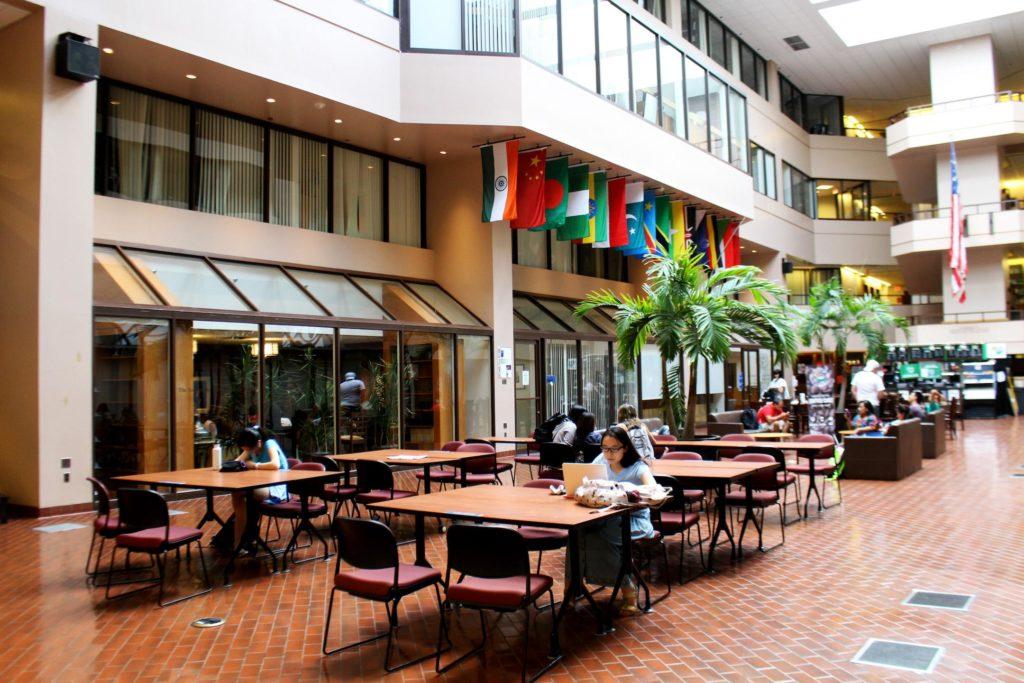Georgetown University is offering a new undergraduate certificate in South Asian studies following years of student and faculty advocacy for an expansion of programming covering the subcontinent.
In order to receive the certificate, students must take six courses reflecting a comprehensive study of South Asia, take a research seminar course on Asian Studies in their senior fall and demonstrate facility in a language indigenous to South Asia either through the university or an approved third party service for languages the university does not offer proficiency tests for. Any undergraduate student who has already met or plans to meet the requirements can pursue the certificate starting this year.
Professors and students in the Asian Studies program, the GU South Asian Society (SAS) and the SFS Academic Council (SFSAC) collaborated to make the certificate a reality, meeting over the summer and throughout the beginning of the Fall 2022 semester, according to Professor Yukhi Tajima, who has served as director of the Asian Studies program since July 2022.
The certificate comes after multiple years of student advocacy, most recently in the form of a petition written by Nikash Harapanahalli (SFS ’24), Suhani Garg (SFS ’23) and Shevani Tewari (SFS ’24) that received over 250 signatures in Spring 2022.
Harapanahalli — president of the SAS and academic co-chair of the Asian Studies program — helped develop the certificate and said getting it operationalized was a community endeavor that firmly asserts the place South Asians and South Asian Studies have at Georgetown.

“This is a chance for me, for the first time in my life, to receive a unique confirmation of my study of South Asia,” Harapanahalli said in an interview with The Hoya. “For me personally, this represents the collation and physicalization of my community’s dreams, my dreams, to finally be able to study this.”
Tajima said the certificate will bolster Georgetown’s coverage of South Asian studies and build community around the study of the subcontinent.
“It is important for the Asian Studies Program to expand beyond its historical strengths in Northeast Asia with more offerings on South and Southeast Asian studies,” Tajima wrote to The Hoya. “South, Southeast, and Northeast Asia are all important and dynamic regions in their own right and are also all intimately connected to each other in their shared histories and destinies.”
Garg said the certificate reflects the impact student advocacy can have, though the process takes time.
“It shows that students can take control of what they’re learning at Georgetown and make demands of the university in order to be able to get the kind of education and experience that all students deserve,” Garg told The Hoya. “Hopefully as more of these campaigns and advocacy happen, not just for South Asian Studies but throughout the university, there will come a time where it’s an efficient and faster process.”
SFS professors voted to approve a certificate in South Asian studies in 2017, but it was not operationalized until this semester. Tajima discovered the certificate after Harapanahalli and Ali-Caccamo approached him with a petition for a South Asian Studies certificate at the beginning of the Fall semester and said the delay in rolling it out likely stemmed from a lack of sufficient language offerings at the university at the time, which have since expanded to include Hindi and Urdu.
After Tajima found the 2017 certificate, which was nearly identical to the certificate the team had created together, SFSAC President Adrian Ali-Caccamo (SFS ’24) said the team shifted their focus from the logistics of getting it approved to effective implementation.
“From there, we obviously did not have to go through the bureaucratic processes anymore,” Ali-Caccamo said. “With help from members of the Academic Council, with members from South Asian society, we worked to strategize on communications for this new certificate.”
The certificate marks a step in the right direction, but to accurately depict South Asia requires an expansion of class offerings on South Asian religions and languages, according to Harapanahalli.
“We need to represent the entire region and all of its regards to vibrancy and diversity,” Harapanahalli said. “South Asian students at Georgetown have a right to study their heritage. They have a right to understand their past so they can make a better present to forge an even better future.”
Professor Shareen Joshi, a scholar of development economics with a focus on South Asia, said Georgetown must offer a broader set of courses taught by faculty with knowledge of the subcontinent in order to sufficiently support students pursuing the certificate.
“It is very important for the School of Foreign Service to ensure that the curriculum is coherent, academically rigorous, rich in variety, and most of all, sustainable for years to come,” Joshi wrote. “We need to see real experts, with the best possible academic credentials as well as rich lived experience in South Asia teaching in this program and mentoring our students outside the classroom.”
A university spokesperson said the certificate is part of an ongoing commitment to making Georgetown’s coverage of the subcontinent more comprehensive.
“Through this addition, our Asian Studies program recognizes the need to deepen engagement with the South Asia region,” the spokesperson wrote to The Hoya. “We continue to actively work on efforts to expand our course offerings, convenings and opportunities to understand the critical importance of South Asia to global affairs.”
Harapanahalli said he hopes students will use the momentum from the new certificate and continue to advocate for South Asia through events like the South Asia Speaker Series, a project of the Asian Studies program that aims to bring South Asian speakers to campus to discuss topics relevant to the subcontinent.
“It is my sincerest hope that underclassmen not only take this but make it bigger and make it brighter and make it better,” Harapanahalli said. “We can only go up from here.”
This article was updated on 10/29 to correct the name of the language Hindi, which was incorrectly labeled “Hindu.”





















Courtney • Oct 30, 2022 at 3:45 pm
Amazing!